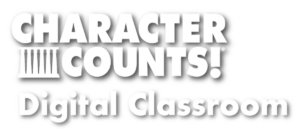“Civility costs nothing and buys everything. You don’t have to join anything, there’s no initiation, there’s no fee. It’s simply what is expected of us.” – Chuck Hughes
The far-reaching benefits of civility cannot be overstated. Civility can help to resolve many challenges in school, the workplace, and society. It can pay dividends by reducing bullying and discrimination, promoting diversity, and improving interpersonal relationships. Teachers can help students to recognize the life-long benefits civility can have on their future success.
Questions related to my class and interactions with students and student interaction with fellow students
- I can’t control others’ behavior or opinions, so I focus on my own character, actions, and civility. What does this mean to you? For how you manage your class? How does it work?
- In thinking about my classroom, what does it mean to you to have a civil learning environment? Why is that important?
- What’s already working to promote respectful behaviors? List as many as you can.
- Think of conversations you have with others. How do non-verbals detract from the civility of the conversation, even when the speaker doesn’t see you rolling your eyes or making faces?
- Why is civility important for student success?
- What is the connection of civility to empathy?
Questions related to our school environment
- How can we as a school promote more of what’s working related to creating a civil learning environment?
- What makes this difficult and challenging for our school?
- How can an intentional, pervasive, and repetitive effort to integrate CHARACTER COUNTS! have an impact on our school environment?
- What limitations need to be taken into account to create a respectful work culture?
- What makes you resolute to create a respectful and positive climate at our school? How can we get better?
Hear more from Gary on Twitter – @GSmit4Character

